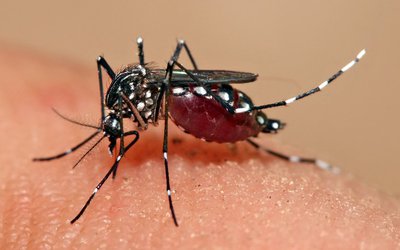
The number of confirmed COVID-19 cases has passed 45 million globally, with over 1.1 million fatalities and more than 30 million recoveries, according to the latest tally from Johns Hopkins University.
On Thursday, France and Germany moved toward shutting down some sectors of the economy as part of accelerating efforts to control a resurgent coronavirus and limit the financial fallout.
France has been forced back into a strict lockdown on Friday, with President Emmanuel Macron saying it is the only way to battle the second wave of the coronavirus pandemic.
The measures are in place until at least the start of December because of the growing numbers of infections, deaths and hospitalizations.
Parisians and the residents of other major cities are bracing for a month of new confinement.
"With the authorizations and all that, it's not really a 'light' lockdown," said Pascale, a 56-year-old market shopper. "But if we have to go through this then we have to play the game so we can get out of this crisis."
After Macron's address to the nation on October 28 announced the new lockdown measures, Prime Minister Jean Castex addressed MPs, who voted overwhelmingly to approve the new restrictions.
"We will have to manage a higher peak of hospitalizations in November than in April," said Castex.
"And because the virus is accelerating, we need to accelerate too. The situation is changing and we are adapting to the new circumstances created by this sudden acceleration."
The EU's healthcare systems are at risk of being overwhelmed by a surge in cases unless the countries act swiftly to overturn the trend, according to European Commission head Ursula von der Leyen.
Spain's new infections rose by a record 23,580 on Thursday, as the nationwide total rises to over 1.1 million.
UK Foreign Secretary Dominic Raab has refused to rule out the implementation of further lockdown measures, saying "We're always ready for further measures that we can take."
Sweden's new cases rose by 2,820 on October 28, the country's highest one-day rise since the start of the pandemic.
The European Central Bank has agreed to boost its pandemic stimulus in December after the economic recovery is "losing momentum more rapidly than expected," according to ECB President Christine Lagarde.
The World Health Organization has urged European nations to use a nationwide lockdown only as a "last-resort option."
Traffic around Paris hit record levels on Thursday night hours before a new national lockdown came into force, causing chaos across the city.
EU's health ministers meet via video conference on Friday to discuss limiting non-essential travel in Europe as well as a draft document outlining the bloc's common position on the reform of the World Health Organization.
More than 250 healthcare workers protested in the Belgian city of Liege on Thursday to complain about staff shortages across Belgium's hospitals.
Spain's parliament has voted in favour of extending a nationwide state of emergency by a further six months.
Oil and gas companies worldwide are taking an axe to their employment rolls, shedding workers to survive what is expected to be a prolonged stretch of weak demand.
Exxon Mobil Corp said it will cut its workforce by 15 percent, or about 14,000 people, along with oil majors Chevron Corp and Royal Dutch Shell Plc.
All told, more than 400,000 oil and gas sector jobs have been cut this year, according to Rystad Energy, with about half of those in the United States, where several big exploration companies and most large oil service companies are headquartered.
Coronavirus has devastated swathes of the global economy, with energy, travel and hospitality among the industries hit hardest.
In addition to Exxon, Chevron Corp, Australia's Woodside Petroleum Ltd and Canada's Cenovus Energy Inc all announced plans in recent weeks to cut staff.
Global fuel demand slumped by more than a third in the spring. While consumption has recovered somewhat, it remains lower than a year ago with major economies resuming lockdowns to contain the pandemic.
The downturn has been particularly harsh in the United States, the world's largest crude oil producer. The nation has recorded the most deaths from coronavirus, and the damage from the pandemic has sent unemployment to about 8 percent.
Consolidation is helping drive job cuts. Chevron plans to eliminate roughly 25 percent of the staff acquired with Noble Energy, which it acquired this month. Shell said its oil output likely peaked last year, and it plans to cut roughly 10 percent of its workforce. Cenovus said it will cut 25 percent after it buys rival Husky Energy Inc.
Not all companies are throttling back. PetroChina Co Ltd, Asia's largest oil and gas producer, reported a 350 percent surge in profit from a year earlier, owing to revenue from pipelines spin-offs.
Currently, futures markets suggest crude prices may not advance beyond $40 a barrel for at least two more years due to weak demand, and that could limit hiring.
"The practical reality is when you have oil prices in the $30 to $40 range, I don't think many companies have the luxury to wait for a recovery," said Alex Pourbaix, chief executive at Cenovus.
- Russia launches one of its largest attacks against Ukraine
- Jul 06, 2025
- India notifies WTO of proposed retaliatory duties against US tariffs on autos
- Jul 06, 2025
- PM Oli Returns Home Attending UN FFD4 Summit
- Jul 05, 2025
- Trump signs into law domestic policy bill
- Jul 05, 2025
- Putin-Trump call after US halts some arms shipments to Ukraine
- Jul 04, 2025














